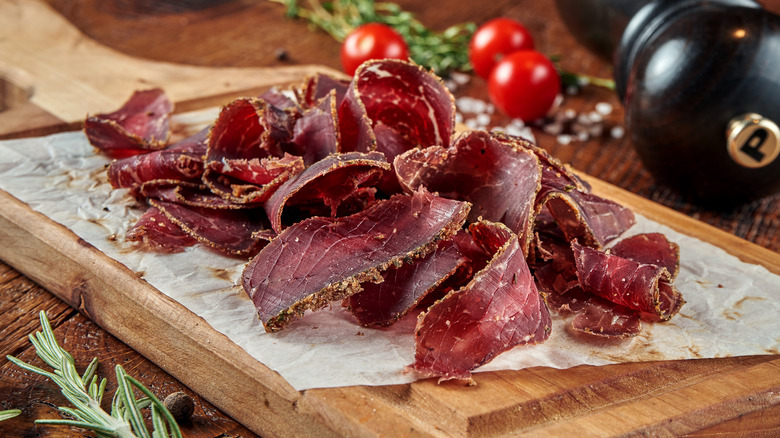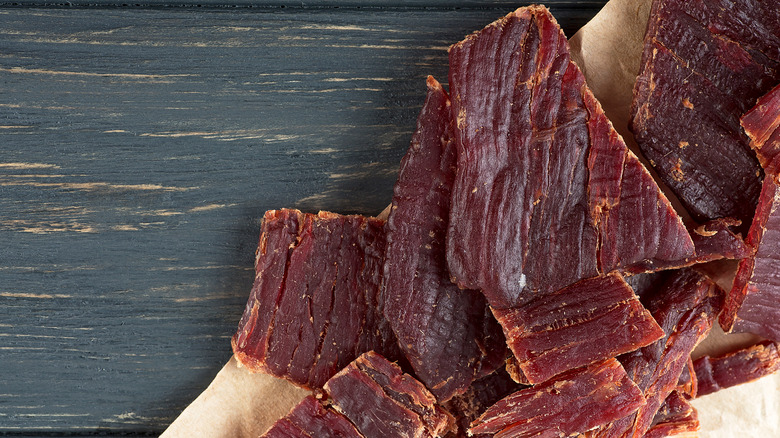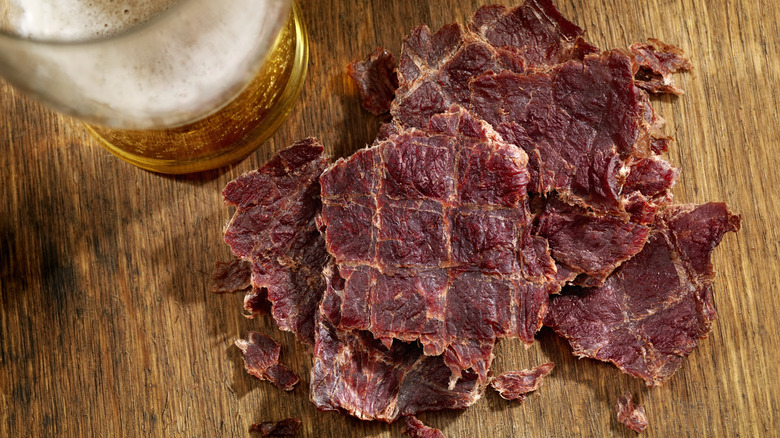The Science Behind Why Beef Jerky Is So Expensive
Beef jerky is an easy grab-and-go snack that's perfect for anything from a post-gym treat to a long car ride staple. This dried meat is loaded with protein and often well-seasoned with different flavors such as barbecue or chipotle spice. One thing to consider, though, is beef jerky's high price tag. It's often much more expensive than a protein bar or a bag of chips, so even though it's tasty, you might need to watch your wallet when purchasing it.
People have often wondered what makes dehydrated meat so expensive, but the answer is simpler than you probably thought: it's a lot of meat, which drives up its price. The size of the meat that we see when we peek into that small bag is actually a far cry from the way the meat started out. It takes quite a bit of beef to create a decent amount of dried jerky, and its convenience store price reflects that.
Beef jerky's meat reduces in size as it's dehydrated
There are two elements that add to the cost of beef jerky: the amount of meat required, plus the process of producing a high-quality snack. Popular jerky brand People's Choice even tries to explain on its website why its retail cost is so high. It cites "raw beef costs" as the first factor, but it also adds that "high-quality ingredients, non-automated processing, required time & energy, and the dehydration process" all work themselves into that overall retail price.
So, just how much meat is used for jerky? According to another jerky brand, Mountain America Jerky, 50 pounds of meat becomes less than half of that once it's dehydrated — about 23 pounds. So, despite that you're only eating six ounces of jerky in a large bag, it actually took the cost of almost a full pound of meat to produce that product. Beef muscle is about 75% water, though this varies depending on the cut, which means it reduces dramatically in size when all of that water is removed.
Other aspects of beef jerky production are expensive
In addition to the science behind beef jerky's shrunken meat, the actual creation process takes time, too, and labor costs affect the retail price of jerky as a result. The smoking process takes about three days, which means someone has to be carefully monitoring that meat over time to make sure it reduces as it should. Though some commercial jerky companies do dehydrate their meat, which takes only around four hours and definitely cuts the cost, it doesn't change the price of beef. Plus, some jerky companies use manpower to move forward in the jerky process rather than relying entirely on machines, which leads to a higher price tag as well. Most craft jerky makers use high-quality spices to season the products, too, so a small-batch jerky company is likely going to charge more for its product than a mass-produced jerky brand would.


